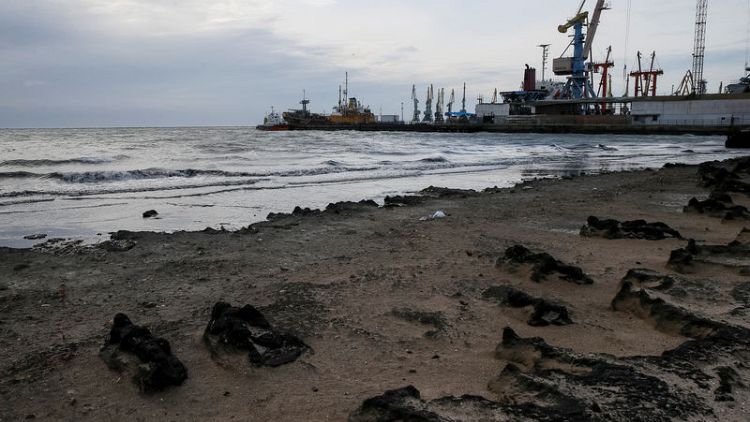By Gabriela Baczynska and Robin Emmott
BRUSSELS (Reuters) - European Union foreign ministers will discuss in February imposing more sanctions against Russia over a stand-off with Ukraine in the Azov Sea, diplomats said.
The bloc will also issue a demarche -- a formal diplomatic protest note -- to Moscow as early as next week over Russia's continued detention of 24 Ukrainian sailors captured during the incident in November, they added.
EU members that have long taken a hard line on Russia, including Lithuania, Sweden, Britain and Poland, are now backed in proposing more sanctions by countries like Denmark and Slovakia. They argue that pressure from France and Germany on Moscow to free the servicemen has not borne fruit.
Berlin and Paris helped negotiate a stalled peace agreement for Ukraine after Russia annexed Crimea from its neighbour in 2014 and then backed rebels fighting government troops in the east of the country.
In December, the two opposed new sanctions, asking for more time to negotiate the release of the Ukrainian sailors and their three ships, captured in the Kerch Strait, which links the Black Sea and the Azov Sea.
With a Moscow court having extended the sailors' arrest until April, Germany and France would now be more likely to back more restrictive measures, diplomats said.
"We have to apply additional sanctions," Lithuania's Foreign Minister Linas Linkevicius told Reuters this week.
"Some (in the EU) say we should give dialogue with Russia a chance in the Normandy format, but I say that is not productive," he said, referring to four-way talks between Russia, Ukraine, Germany and France.
Italy is among traditional opponents in the EU of sanctions against Russia, a decision that requires unanimity among all 28 member states, citing negative impact on business ties.
That means any move could be limited to adding some names of Russians involved in or responsible for the Azov Sea incident off the Russian-annexed Crimea to the list of people barred from entering the EU and subject to asset freezing over their role in the turmoil in Ukraine.
EU foreign ministers meet in Romania next week and are due to discuss that at their next session in Brussels on Feb. 18, though any final decision could come later.
The bloc decided in December to extend its main economic sanctions on Russia and has stepped up support for Ukraine's government. Fighting between government forces and Moscow-backed separatists in eastern Ukraine has killed more than 10,000 people since 2014.
Russia vows never to give Crimea back to Ukraine. It accuses Kiev of staging a provocation in the Kerch Strait and its sailors of crossing illegally into Russian waters.
(Writing by Gabriela Baczynska; Editing by Catherine Evans)
